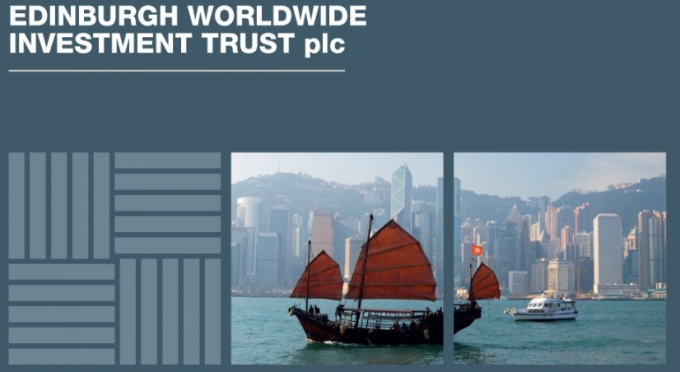Edinburgh Worldwide Investment Trust (EWI) has released its results for the financial year ending 31 October 2022.
- Over this 12 month period EWI generated a NAV total return of -40.3% and share price total return of -46.0%. This compared to the -6.8% return of the trust’s comparative index, the S&P Global Small Cap Index. Despite the 12 month underperformance, EWI remains ahead of its comparative index over a five year period with EWI generating a NAV total return of 37.5% compared to the 36.5% of the index.
- EWI has once again paid no dividend over its financial year.
- Over the financial year 550,000 new shares were issued, while 13,468,672 shares were bought back. The net effect was to reduce share capital by 3.2%. EWI currently trades on a 7.7% discount.
- Gearing increased from 2.5% at the start of the financial year to 12.3% be 31 October.
- As of 31 October 2022 EWI held 14 private companies, accounting for 20.1% of assets, with the company holding 12 companies as of 31 October 2021 (accounting for 10.8%). EWI’s shareholders approved a limit of 25% of total assets in unlisted investments (at time of investment) during the 2022 financial year. Over the financial year EWI initiated three new private positions with one of their private holdings successfully listed, and still held by EWI , leading to a net increase of two.
- The largest detractors to EWI’s performance came from some of its largest holdings, such as Ocado, Codexis and Upwork. Top contributors included SpaceX, ShockWave Medical, and Alnylam.
- Over the year 11 new investments were added to EWI’s portfolio, listed and unlisted, funded in part by the increase in gearing, and in part by the 15 positions which were exited over the year. Examples of new investments include Twist Biosciences, a DNA-focused biotech, Doximity, a medical software company, and Echodyne, a private radar systems producer.
EWI’s investment managers commented:
“Although our enthusiasm for what the future offers is undiminished, the share price performance of many of the holdings in the portfolio has been sharply impacted by the changing backdrop” …. “For many of the companies held, this feels a largely mechanical based valuation reset as interest rates have risen and consequently their future cashflows are deemed to be worth less. More recently, this has been exacerbated as stock markets have begun to price in lower economic growth assumptions.
“Our bottom-up, growth-orientated investment style will always leave us at the mercy of fear-driven market sell offs. Simply put, the current areas of angst (volatility in interest rates and economic cyclicality) are not inputs that we think carry much insight when performing long term analysis on a company. Our analysis skews heavily to understanding how the operations of a business might perform over the 10+ year timeframe. For most businesses, and especially younger/smaller ones, that path will be most heavily influenced by both the decision that a company takes and how its industry evolves.
“The decade long era of abundant and overly cheap capital has run its course. The premium placed on stable long-term capital will be higher. As the pendulum of power is shifting from the users of capital towards the providers of capital, we think the relevance of Edinburgh Worldwide’s structure and philosophy will, once again, come to the fore. A transition period is just that.
With the technology-led opportunity plentiful, yet the supply of capital restricted, we see greater opportunity for our analysis to actively focus on companies that are in a capital consumptive phase of growth.”
[QD comment]: EWI’s large NAV drawdown is largely in line with what one would expect from a high-growth small cap strategy, effectively the plunge after what was a very upward trending rollercoaster over the last five years. Though as most investors will be aware, growth investing in the manner of EWI’s is a high risk, high reward strategy, and one should not judge its managers too harshly when their style has come out of favour, something virtually all dedicated growth managers have needed to face over 2022.
We believe that the increase in EWI’s unlisted exposure may be a double-edged sword for the trust. In theory it substantially differentiates it from many of the other small cap strategies that investors typically have access to, and it has been a source of alpha over 2022, given SpaceX’s top contribution. However the trust’s exposure to unlisteds may become a very sizable chunk of the trust’s assets, perhaps approaching the new 25% limit on such exposure, if its listed equities continue to fall. It also increases valuation uncertainty, which may also affect the discount down the line. The trust has increased its gearing over the year, which adds further risk to the trust during a very volatile period.
